FROM NOVA MAMORÉ (RONDÔNIA/BRAZIL) – Protected by an armed police scheme provided 24 hours a day by the Rondônia government, 605 heads of cattle grazed until April within the Guajará Mirim State Park, a full protection conservation unit in the Amazon (see box) where cattle breeding is prohibited.
The animals were there because they were seized by the state. According to the Military Police of Rondônia, their owner is a rancher identified as an invader of the preservation area – he was arrested in November during a large operation that removed suspects of land grabbing from the site. The herd was seized in order to prevent a possible sale, since, according to the authorities, several of the detained man’s accomplices are still at large and are prowling the area trying to remove the cattle.
“We have identified a criminal organization operating in the park that includes owners of farms that are adjacent to the conservation unit,” explains Rondônia prosecutor Pablo Hernandez Viscardi, who is working on the investigations. “These properties are used to launder cattle raised illegally inside the park. Without this maneuver, they can’t be sold to meatpackers”, he adds.
The thread that connects cattle ranching, deforestation and land grabbing inside the Guajará Mirim State Park goes beyond environmental crimes: investigations carried out by authorities over the last two years, to which Repórter Brasil had access, sustain that members of the gang would be involved in cases of money laundering, tax evasion, false representation, extortion and embezzlement.
Cattle is the element that connects the illegalities. Documents included in the case file and other evidence obtained directly by Repórter Brasil show deals made between those accused of the crimes and some of Brazil’s largest meatpacking companies in recent years – such as JBS, Marfrig and Frigon.
AN ECOLOGICAL CORRIDOR AND HOME OF UNCONTACTED INDIGENOUS PEOPLES
The Guajará-Mirim State Park covers an area of approximately 200 thousand hectares and is a full protection conservation unit. According to Brazilian legislation, this type of environmental protection unit has the strictest rules of use, allowing only indirect use of natural resources. Sustainable use units may accommodate economic and subsistence activities, provided they are managed within a concept of respect for the environment.
The park is part of an important ecological corridor in Rondônia that connects various conservation units and indigenous lands. To the north, it borders the Karipuna indigenous territory, which in turn is linked to the Jaci-Paraná Extractive Reserve. To the south, there are the Eru-Eu-Wau-Wau indigenous land, several other extractive reserves, and national parks. “It is not only a rich corridor of biodiversity but also of culture, of identity”, observes indigenous activist Neidinha Suruí, from the Kanindé Association.
But several of these areas have been targeted by invasions. “The park was invaded, our territory too, the Jaci Paraná Reserve, which is nearby, is also invaded. Then it gets difficult because there is no more forest, there will be no more standing forest”, warns the Karipuna people’s chief, André Karipuna.
In recent forays to the southern edge of their territory, exactly where the indigenous land borders the park, leadership found evidence of the existence, in that region, of uncontacted indigenous. “If we are threatened, imagine them”, he worries.
Suruí, who participates in expeditions in search of evidence, corroborates. “We believe that these indigenous people are in an extremely reduced group, either they were killed or expelled from there [due to invasions].”
A judge arrested
In August last year, the thread linking the various parts of the group accused of the crimes began to unravel when the Rondônia Court of Justice decided that the then judge of the Buritis municipality in Rondônia, Hedy Carlos Soares, should lose his position because he would have sold judicial decisions in exchange for bribes.
The case that led to the judicial decision uncovered investigations that pointed to Soares’ participation in a land grabbing and cattle ranching scheme within the Guajará Mirim State Park.
Among the judicial decisions under suspicion was a decision made by the then judge two years earlier, in March 2018. On that occasion, Soares authorized a man named Erivan da Silva Teixeira to remain in possession of almost a thousand hectares of land on a farm called Fazenda Cantão. According to the Rondônia Environment Secretariat (Sedam), the area was within the Guajará Mirim State Park.
According to Sedam’s calculations, Teixeira had already cleared 780 hectares inside the park. “This circumstance makes him one of the biggest invaders and degraders of the aforementioned conservation unit”, the Rondônia Public Prosecutor’s Office would say a few years later, when analyzing the case during the judge’s trial. In the area, Erivan Teixeira planted pasture, as Soares’ sentence recorded.
It turns out that, at least since January of that year, the judge would have had a lease agreement with Teixeira for using the Fazenda Cantão, as revealed by Agência Pública in 2022. And the public prosecutor’s investigations also showed that, the following year, the then judge issued Animal Transit Guides (GTAs) moving almost 300 head of cattle between Cantão and the Prosperidade farm in Buritis, which he owned.
Hedy Carlos Soares was also caught by Sedam employees leaving a barbecue on the Fazenda Cantão, on the holiday of September 7, 2018.
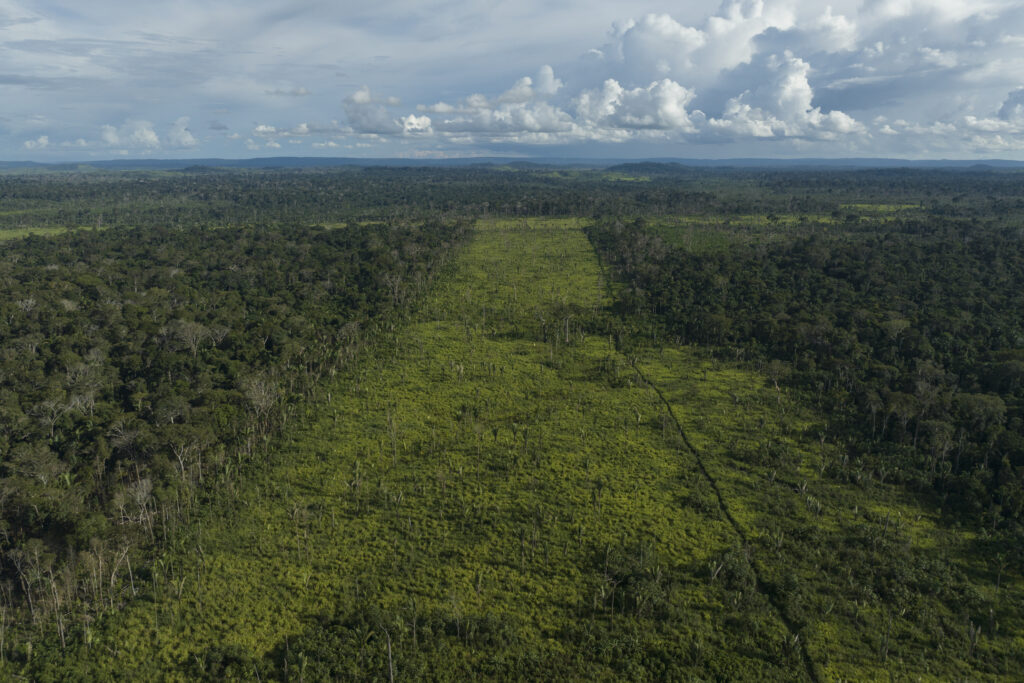
According to Judge Marcos Alaor Diniz Grangeia, who ordered an investigation into Soares’ conduct, there was “an interest on the part of the magistrate himself in granting the request to maintain possession, given the business relationship he had with the owner of Fazenda Cantão.” Soares would also decide to return a tractor, a trailer and other equipment to the environmental offender in other court cases in which his decisions were questioned.
But, according to the investigations, Erivan was no mere tenant, nor was he an eventual business partner of Hedy Carlos Soares. Another ruling by the former judge, made in 2020, revealed the existence of a “group of cattle ranchers” in which he would be included and which are suspected of fraud, tax evasion and concealment of assets, “in theory constituting crimes of false representation, tax evasion, criminal association and possible money laundering”, according to an investigator in 2022. This case still has no final decision and is being held in secrecy.
Among the members of this group are both Erivan da Silva Teixeira and his brother-in-law, Walvernags Cotrin Gonçalves – the man arrested in November 2023 for invading the Guajará Mirim State Park and from whom the police confiscated the 605 head of cattle still in the conservation unit.
Repórter Brasil asked the lawyers of Hedy Carlos Soares, Walvernags Cotrin Gonçalves and Erivan da Silva Teixeira to sent their clients explanations — but only the Public Defender of Rondônia, who is acting on behalf of Teixeira in the processes, responded. The institution explained, however, that despite being appointed for this function, it “had no contact with the defendant,” and that Brazilian legislation prohibits the sharing of his direct contacts with journalists. The full response can be read here, in Portuguese.
Cattle sold to São Paulo
In another decision listed as evidence of the judge’s partiality, Hedy Carlos Soares released a truck loaded with cattle that had been stopped by inspectors from the State Finance Department (Sefin) in Vilhena, on the border between Rondônia and Mato Grosso. The truck had not paid an interstate tax, which is mandatory for this type of transaction. Hedy’s justification was that the shipment of cattle was being made between farms owned by the same taxpayer, a person called Marcos da Cunha Coelho – a theory later disproved by authorities from the Rondônia State Department of Finance (Sefin), the Public Prosecutor’s Office and the courts. The sentence was handed down in November 2020.
The GTA that accompanied the truck did not mention Fazenda Cantão, but the address provided as the origin of the cattle was the same one that appears linked to this property in other transactions to which Repórter Brasil had access. The Rondônia Public Prosecutor’s Office also traced numerous cattle transactions between Marcos da Cunha Coelho and Hedy Carlos Soares on Idaron’s systems and tracked financial transfers between them.
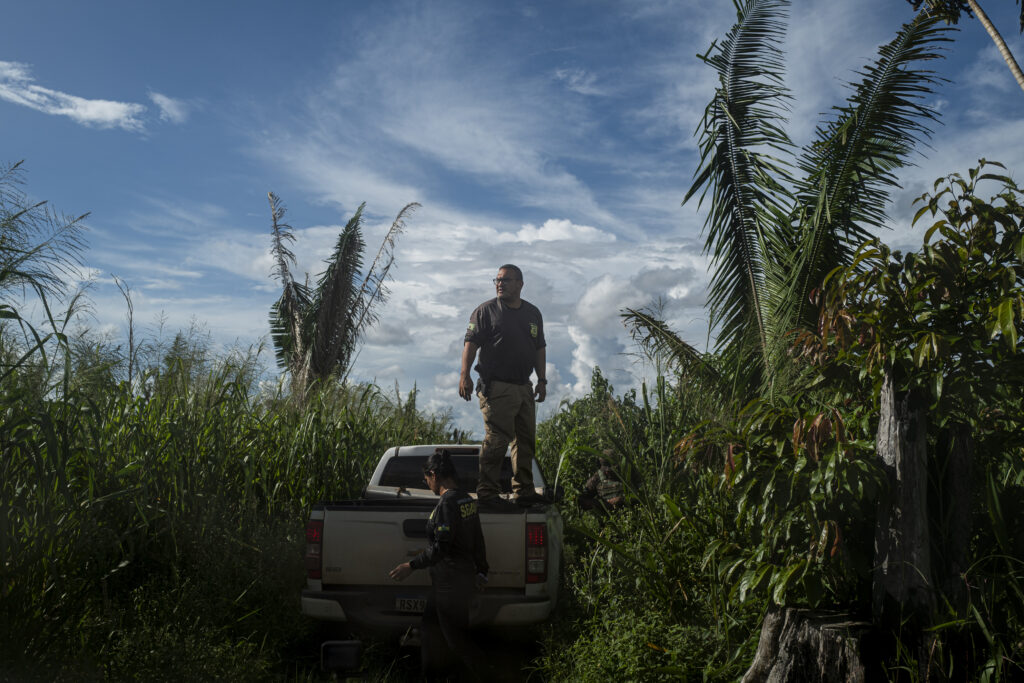
“The information and evidence produced in the case file show that the judicial decision handed down by Judge Hedy Carlos Soares was aimed at personal interest, to the extent that there is strong evidence that the cargo retained by Sefin, or at least part of it, belonged to him or was of interest to him”, concluded the Public Prosecutor’s Office in 2022, after an in-depth investigation.
The truck carrying the cargo was registered in the name of Walvernags Cotrin Gonçalves – supposedly the owner of the cattle seized in the park in November last year, with whom Soares had also made “significant transactions for the purchase and sale of cattle”, according to documents in the investigation.
“The evidence produced showed, without a shadow of a doubt, that a group of cattle ranchers has been using the name of Marcos da Cunha Coelho in the movement of cattle and transportation to the state of São Paulo, among them the judge under investigation,” explains the Public Prosecutor’s Office, naming Hedy Carlos Soares, Gonçalves and Teixeira.
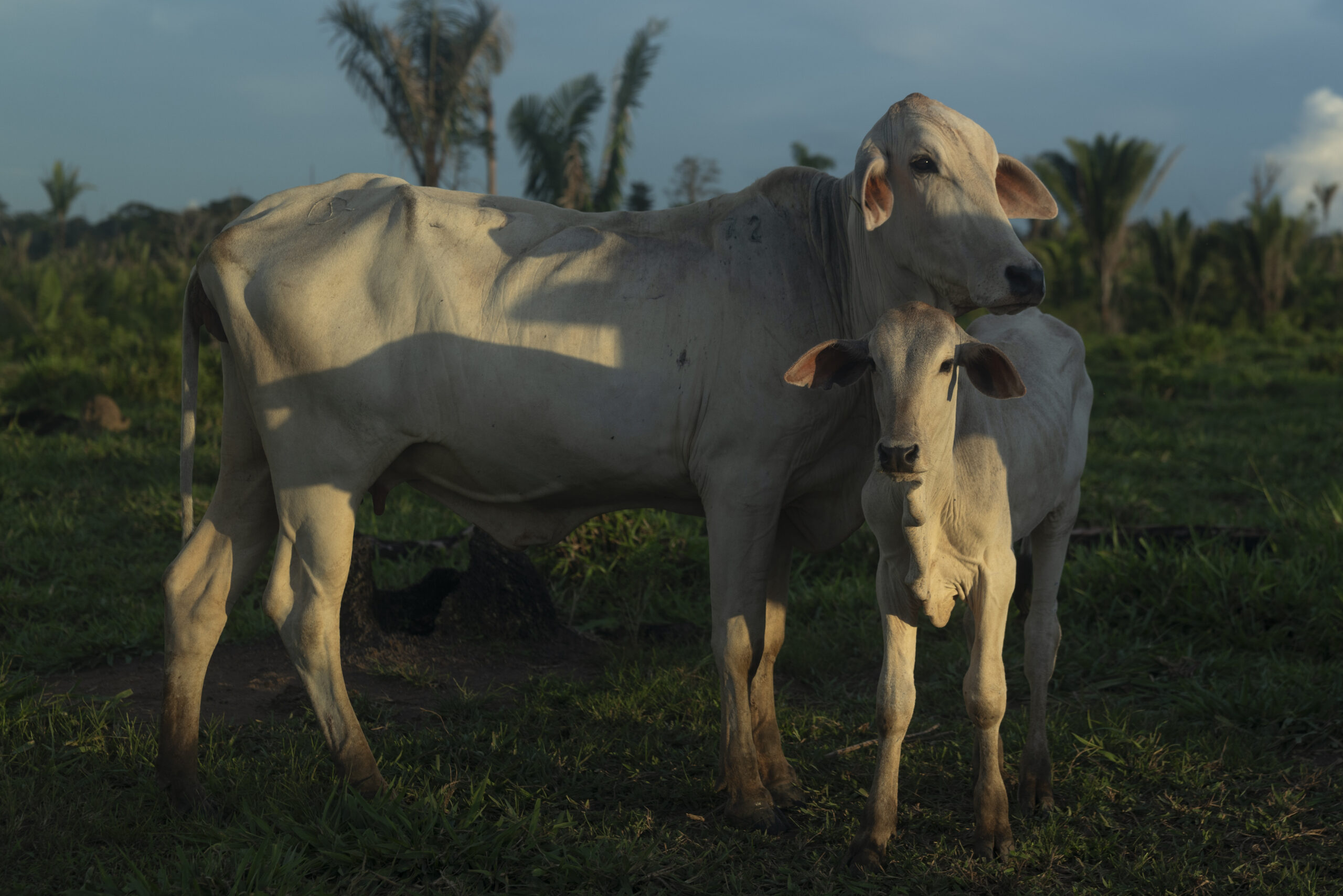
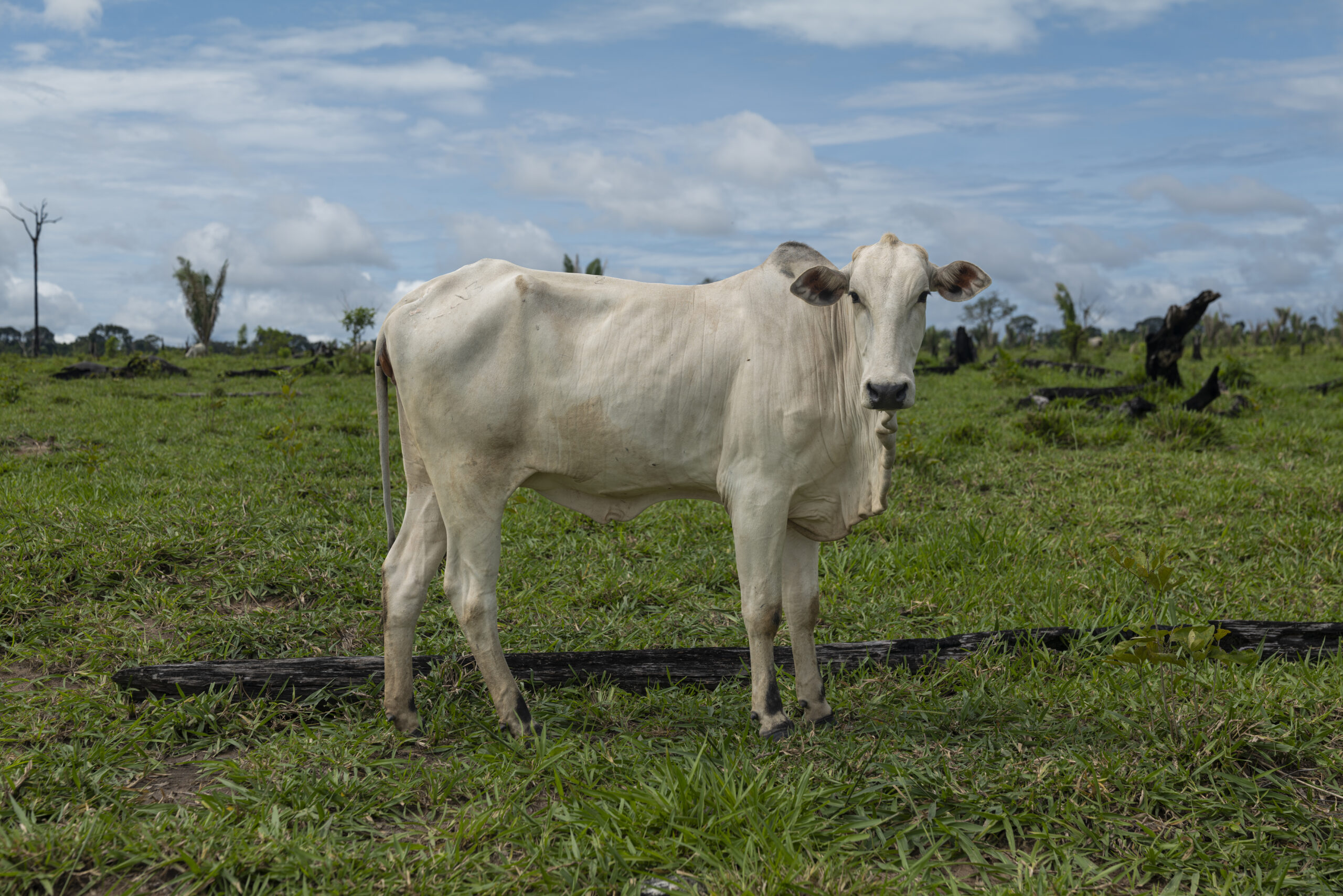
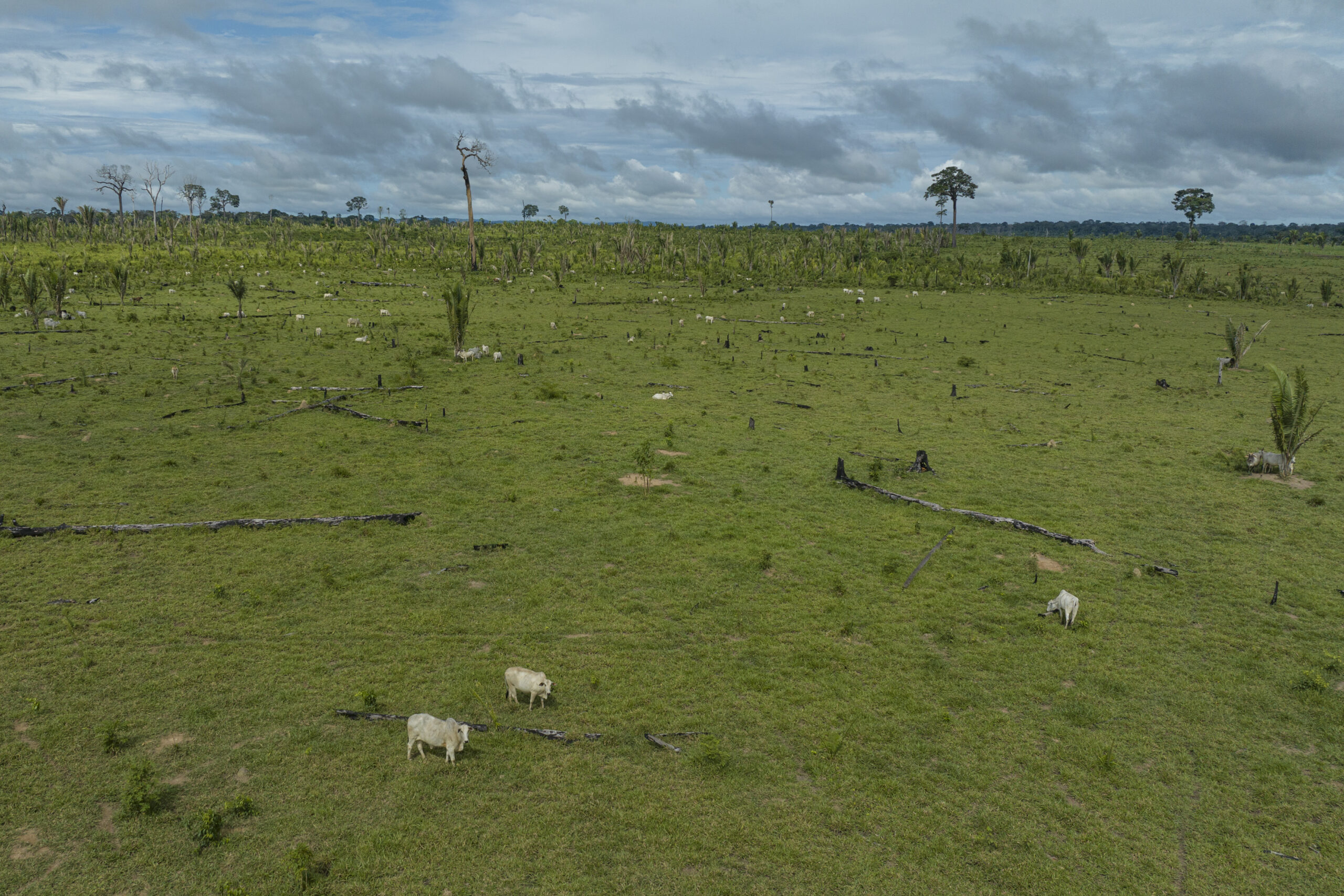
Hedy’s decision had a multiplied effect: according to data from the Rondônia Finance Department, after that day the group allegedly made several shipments of cattle to São Paulo using the name of Marcos da Cunha Coelho – the volume of animals grew year on year. The transit of at least 1,110 head of cattle has been traced, whose total value may have resulted in the evasion of R$ 348.6 thousand in taxes. “It is likely that all the cattle sent in the name of Marcos da Cunha Coelho to the Arabiri Farm, located in Birigui/SP, were not subject to taxes, based on the decision preferred by Hedy Carlos Soares,” the Public Prosecutor’s Office notes in the case file.
Contacted by Repórter Brasil, Marcos da Cunha Coelho’s lawyer did not send comments.
Business with meatpackers JBS and Marfrig
The investigations into the cattle shipments to São Paulo also pointed to the existence of three contracts signed in January 2021 by former judge Hedy Carlos Soares and Marcos da Cunha Coelho with Fazenda Chaparral, in the municipality of Rancharia. The property – a feedlot dedicated to fattening cattle near slaughter – is a supplier to major slaughterhouses, and received animals both from Soares and Coelho.
GTAs consulted by Repórter Brasil reveal that in December of that same year, Fazenda Chaparral supplied animals to the JBS unit in Lins, São Paulo. JBS stated that the property is “currently blocked” by the company and that “all acquisitions were in accordance with the Federal Public Prosecutor’s Monitoring Protocol and the Purchasing Policy” of the slaughterhouse.
Meanwhile, the Marfrig unit in Promissão, São Paulo, acquired animals from Fazenda Chaparral between 2022 and 2024. The company emphasized that it did not receive cattle from the property in 2021, the year in which the contracts between the investigated people and the farm were signed.
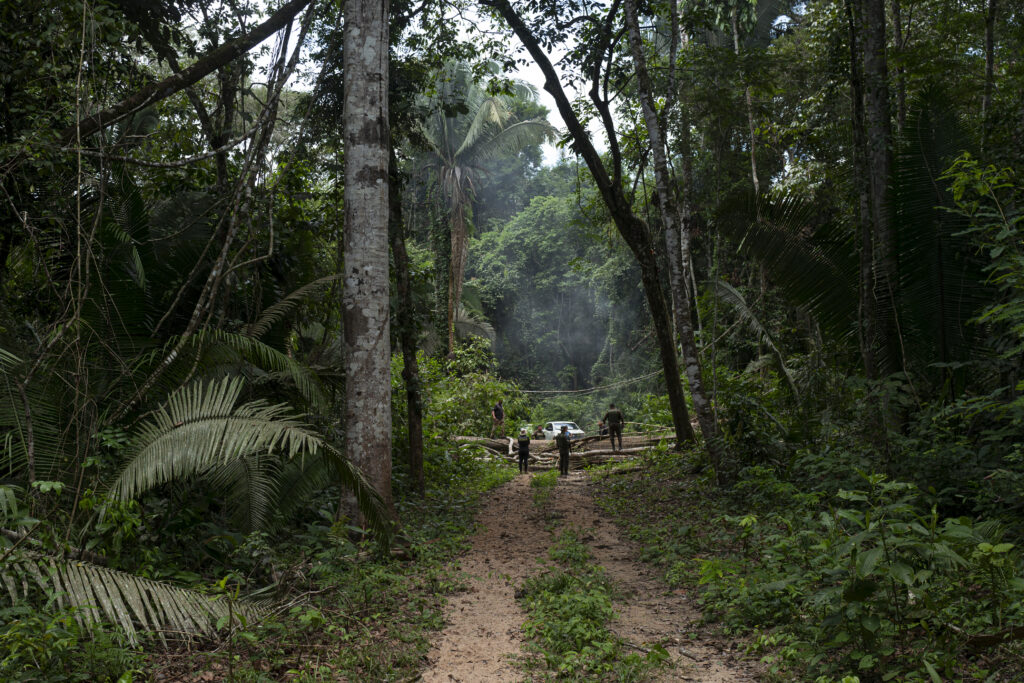
One of the parts of the confidential investigations to which Repórter Brasil obtained access shows accounting spreadsheets and even bank statements of former judge Hedy Carlos Soares – also accused of money laundering. The documents mention JBS both in the context of issuing Animal Transit Guides for animals belonging to Soares, and also record deposits that the meatpacker made into accounts linked to the then magistrate.
In addition, several properties and people linked to the cases investigated by the authorities appear to be shipping cattle directly and indirectly to the large Brazilian meatpackers.
An example is Andréia de Lima Sinotti. Between 2021 and 2022, she sent animals to be slaughtered by the JBS slaughterhouse in Vilhena, according to GTAs accessed by Repórter Brasil. The supplying farm, according to the documents, would be Chácara Mãe e Filha, located in Buritis, Rondônia.
However, in statements to authorities, Sinotti admitted not being an actual cattle rancher. Identified as a “front” for the former judge in the investigations, she said that all GTAs issued and sales made in her name were done by her husband, who, in turn, conducted operations on behalf of Hedy Carlos Soares. Sinotti’s husband also confirmed, in testimony, that the profits from the transactions were diverted to the magistrate.
JBS is explicitly mentioned in an animal movement balance attributed to the gang and attached to the investigation into the former judge. The document describes the sale of 13 steers and 5 cows to the slaughterhouse on March 19, 2021. On the same date, 13 steers and 5 cows were sent to JBS in a sale registered in the name of Sinotti and Chácara Mãe e Filha, according to a GTA independently obtained by Repórter Brasil.
In another similar coincidence, the balance informs about the sale of 20 cows to the slaughterhouse on March 25, 2022 – the same date that GTA records point to JBS as the recipient of a shipment of animals from Chácara Mãe e Filha with the same characteristics.
The animal balance describing these transactions does not mention Chácara Mãe e Filha, but only Fazenda Prosperidade, also located in Buritis and, indeed, officially registered in the name of former judge Soares. In 2019, it allegedly received, according to the Public Prosecutor’s Office, hundreds of animals for fattening from Fazenda Cantão, located within the Guarajá Mirim State Park.
Walvernags Cotrin Gonçalves himself, the man whose cattle were seized in November within the park, directly supplied animals to JBS in Vilhena and Pimenta Bueno in 2021 and 2022, and to Marfrig in Ji-Paraná between 2020 and 2021.
During this period, Sítio Oliveira – Gonçalves’ farm registered as a supplier to slaughterhouses – repeatedly received cattle shipments from properties located on the edge of the Guajará-Mirim State Park and also from Fazenda Prosperidade and Chácara Mãe e Filha.
JBS stated that both Sítio Oliveira and properties in the name of Andréia Sinotti – Chácara Mãe e Filha and Fazenda Sombra da Mata – are “currently blocked” and that past business transactions followed the slaughterhouse’s responsible purchasing protocols. Marfrig also admitted to buying animals from Walvernags Cotrin Gonçalves in 2020 and 2021 but also stated that the property “had no non-compliance with socio-environmental criteria” – and further emphasized that “it ceased its activities in Ji-Paraná (RO) in September 2021”.
“Any irregularities pointed out by Repórter Brasil were practiced in previous links of the chain,” adds JBS, which, in the slaughterhouse’s opinion, “reinforces the urgency of addressing the sectoral challenge of monitoring all cattle movement, as protein processing companies do not have access to GTAs from other links in the production chain, preventing them from having visibility over irregular practices as pointed out by the report.” The full statements can be read here.
Andréia de Lima Sinotti declined to comment. The other mentioned cattle ranchers did not send responses to the questions sent to their lawyers.
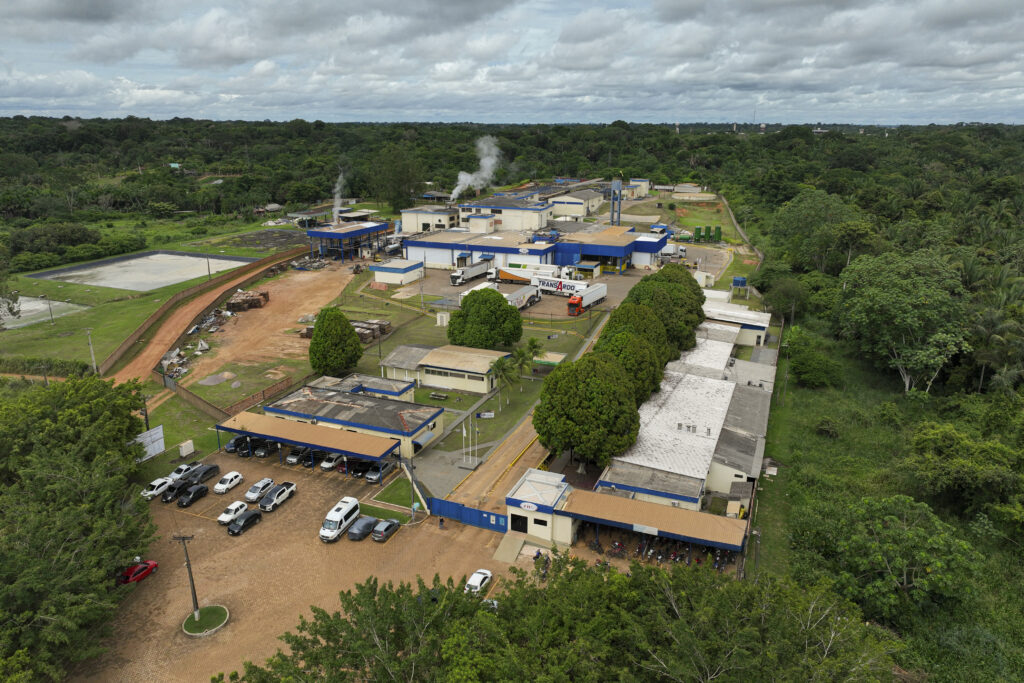
Frigon, in turn, appears as the destination for animals sent by Gonçalves via a farm called Recanto, in Nova Mamoré, between 2018 and 2019 – located on the edge of the Guajará Mirim State Park. This farm is registered in an Incra database but appears as “canceled” due to “partial overlap with duly certified Public Glebes”.
The location of the property registered in public systems coincides with the location pointed out by the police as the headquarters of Fazenda Cantão, in the Guajará Mirim State Park. The slaughterhouse did not respond to attempts to contact them by the report.
Bitcoin and financial pyramids
There are many times when the authorities investigating Hedy Carlos Soares consider, in the various cases in which he is involved, the possibility that the former judge has participated in money laundering schemes. One example is the use of other people’s livestock records to move his own herd, as in the case of Andréia Sinotti. “It is evidence of the crime of false representation and brings indications of possible concealment of assets, an element that characterizes the crime of money laundering,” notes the Public Prosecutor’s Office in one of the investigation documents.
Also included in the investigation are bank movements in the accounts of people linked to the so-called criminal group that do not match their personal income: Marcos da Cunha Coelho, for example, is a bricklayer by profession, but moved R$ 77 million between 2019 and 2021, according to investigations. “The body of evidence produced in the case file leaves no doubt as to Marcos da Cunha Coelho’s status as a ‘figurehead’,” concludes the report.
According to the investigations, Soares made “significant” money transactions, which “do not appear to match the income declared by the investigated party to the Brazilian Federal Revenue Service”. “It is worth noting that the investigation also showed that the investigated Hedy Carlos Soares uses the name of third parties in his business, which in addition to demonstrating that his assets are greater than presented, indicates possible concealment of assets and money laundering, not to mention the investments made in crypto-assets”, informs the public prosecutor in the investigation.
Finally, the Public Prosecutor’s Office also uncovered financial transfers between Soares and a couple who brokered the sale of bitcoins – they are being investigated by the police for financial pyramid schemes. Authorities found photos from the ongoing investigative procedure in São Paulo saved by Soares in his virtual accounts. According to the authorities, since December 2019, the former judge would have known about the involvement of the individuals to whom he transferred resources “in fraudulent schemes,” according to a report signed by the Public Prosecutor’s Office.
“Guerrilla tactics”
The “situation room” of the Rondônia Environmental Police Battalion inside the Guajará Mirim State Park is in a makeshift corner of the cafeteria in the large wooden house with a balcony covered in insect screens that serves as a base for the teams on duty.
It was in this corner that Lieutenant Colonel Adenilson Silva Chagas pasted a large map on the wall and marked the “targets” of Operation Mapinguari, to clear the park, with colored markers. “Walvernags” and “Baiano” (the nickname of Erivan da Silva Teixeira) are two of the points marked on the map in areas where their farms would be, next to each other.
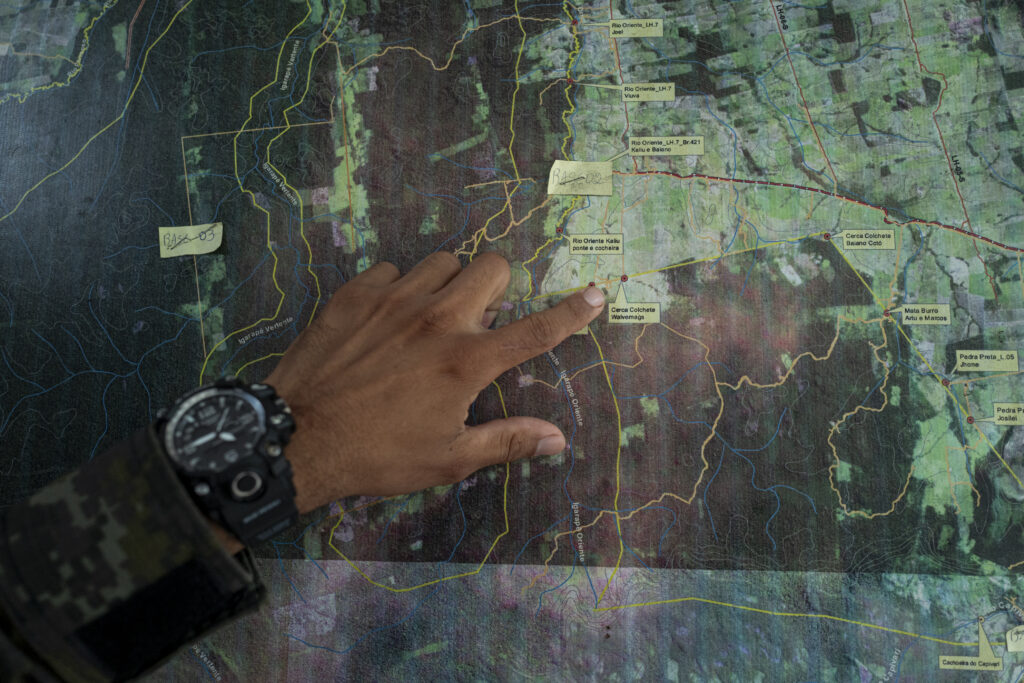
The map was prepared to accompany the eviction of the park as if it were a war, with territories to be conquered – in this case, reconquered by the state after being invaded by land grabbers.
The opponents, in turn, used “guerrilla” tactics, in the words of Chagas, the commander of the Environmental Police Battalion and also of Operation Mapinguari, to clear the park. He recounts events such as trees being deliberately cut down on the dirt roads to prevent the vehicles from passing through (in one case, they had to work all night to saw the trunks and open the way again), ambushes and shooting attacks, including a public employee being wounded. On one occasion, there was a popular uprising to prevent the seizure of a machine that was helping the invaders to open roads and cut down the forest.
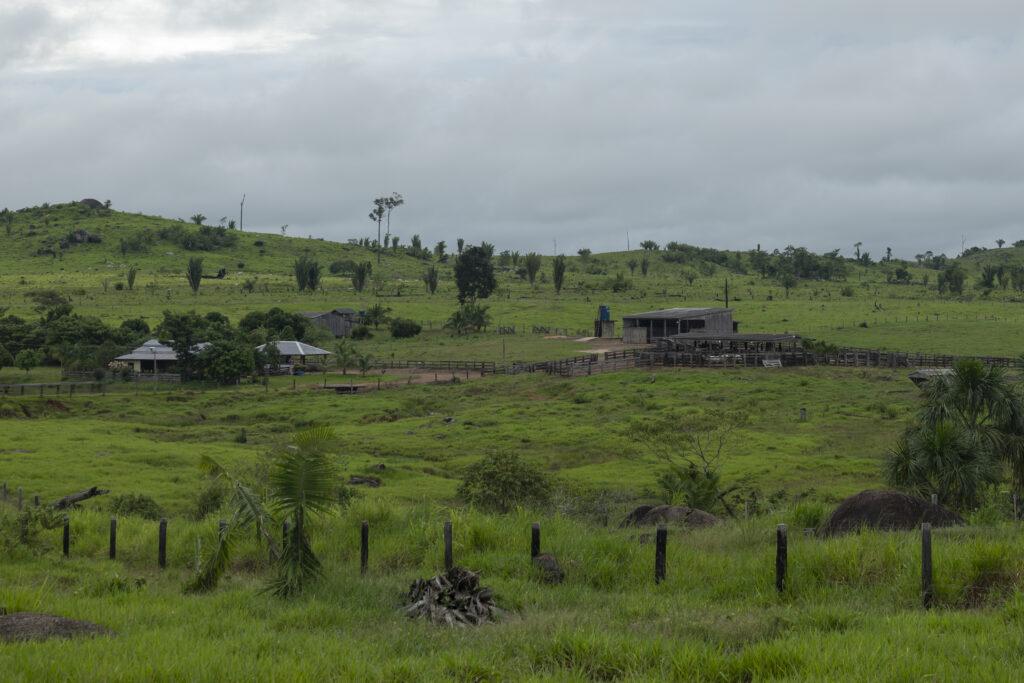
Walvernags Cotrin Gonçalves was, according to the authorities, one of these insistent trespassers. His arrest was ordered after he had been detained on three previous occasions – all of which were released by the deputy on duty. “Not only that, Walvernags initially destroyed and then, with the insertion of cattle, which used part of this very important Conservation Unit as pasture, prevented or at least hindered the natural regeneration of approximately 459.11 hectares of forest,” records a court decision denying his release.
The area once occupied by Walvernags, according to authorities, has visible signs of his supposedly activity: a fence previously destroyed by the police that he rebuilt, screwing metal plates to join the parts sawed off by the authority, planted pasture, and the cattle, which until April were monitored 24 hours a day by the Rondônia shock battalion.
“That night we heard people calling the cattle to try and take them away and a week ago, a drone flew over the area to count how many calves had been born,” explains Sergeant Francinei Mendes, who was on duty the afternoon that Repórter Brasil was there.
In April, Commander Chagas managed to get a court order to remove the cattle from the area. He mobilized his staff and drove the herd three kilometers between this area of the park and the invader’s corral, where he was supposed to be waiting for a convoy of trucks that would take the animals to a charity that would receive them as a donation.
The cowboys who drove the cattle had their faces covered to avoid being identified, and it was necessary to turn off the surveillance cameras of surrounding properties “because they feared for their physical integrity,” reports the occurrence bulletin of the action.
The fear had a reason, according to the document: a previous attempt to remove the animals had been made in 2023. “At the last minute, the contracted company backed out. The owner said he had received phone calls threatening to kill him if he took the animals away,” says Chagas.
Leia também

